Life as a National Geographic Special
An Expat Guide to Living in Indonesia
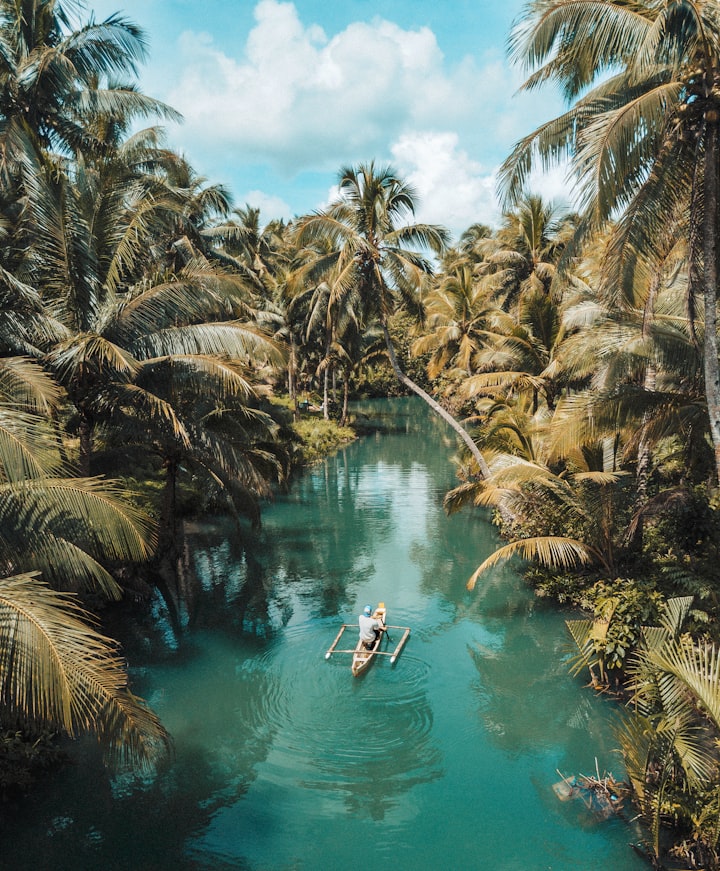
Many expats set their sights on Bali as a retirement/new life destination. A few are scattered throughout the archipelago like Jakarta, Bandung, Yogyakarta, Surabaya, Malang, and Lombok.
Before you pack your bags and do a complete 180 read this article.
If you’re a digital nomad looking for your tribe is one thing but this is about calling it home.
Where Can I Live, a UK company founded in 2018 that helps people move to different countries has seen a 193 percent spike in traffic.
Before Indonesia changed its personal freedom law in Dec 2022 it was the #2 expat destination in the world.
Moving to Indonesia isn’t a matter of booking a flight. This is a life-changing decision.
Over the past 10 years, I have lived throughout Indonesia and I will share what I learned about living here.
Indonesia — the Improbable Nation
Although Bali has certain self-Governance, it is under the thumb of Jakarta the world’s largest Muslim-majority country in the world. What does that mean?
Like anywhere, there are national political issues, and local issues to contend with and some can affect you so read their local media. You can learn a lot more from their media than from someone’s travel blog. Try the Jakarta Post.
According to World Data Indonesia is a developing nation. 25 million Indonesians still live on less than $1 per day. Indonesia is now the sixth country of greatest wealth inequality in the world.
The four richest men in Indonesia have more wealth than the combined total of the poorest 100 million people. The average life expectancy for men is 70 years old and for women 75 years old.
With that in mind, consider extreme poverty as your neighbor. And any time the haves walk beside the have-nots that desperation can lead to trouble.
Indonesia is the world’s fourth most populous nation and the world’s 10th largest economy. It has an emerging middle-income class.
Before the pandemic, Indonesia had made enormous gains in poverty reduction. It has cut the poverty rate from more than half since 1999 to 9.8% in 2018.
The Indonesian archipelago has 17,508 islands, (3,181 mi). East to the west it has the most volcanoes of any country in the world.

Indonesia has more active volcanoes than any other country in the world. It contains some of the world's most famous volcanoes, Krakatau (Krakatoa), Tambora, and Merapi.
Over 300 languages are spoken. Only six religions are official, Islam, Protestantism, Catholicism, Hinduism, Buddhism, and Confucianism.
The last time the Government counted in 2017 the population was about 264 million.
Indonesia is also the second-largest user of Facebook in the world.

How Much Does It Cost to Live in Indonesia?
While your potential new home in Indonesia may have a reputation of being a cheap place to travel to, living there can throw up a different set of variables.
Understand what moving to Indonesia will cost you and how much you will need during the initial months. Prices can still rise and fall here, especially if you choose to live further from Jakarta, Bali, and other major hubs.
The table below will give you a basic understanding of the cost of living in Indonesia. They’re provided with a comfortable lifestyle in mind and have been compiled from my wallet.
Some of these costs are hard coded and others vary according to lifestyle.

If you buy what the locals do personal products are reasonable. Most brands of soap, shampoo, toiletries, and toothpaste are distributed by Unilever.
For example, I don’t have a maid and don’t eat out much. I bought a motorbike and built my house.
Don’t forget the cost of prescriptions, motorbike petrol, hiring a driver, VISA, and a medical problem.
My prescription for high blood pressure is far less expensive than in America but the dosages are wrong and there’s one I can’t find.
Other items like smartphones, computers, TV, and other electronic gadgets cost the same as America.
Automobiles cost the same as 1st world economies too. Across the board, not everything in Indonesia is less expensive. Housing, labor, motor scooter, and locally made goods are less.
VISA
If you are simply looking to live in Indonesia, there was a long-term residence visa called the retirement KITAS. As of Oct 2022, the visa is set to be canceled in June 2023 and replaced by the new 2nd Home Visa.
The change has caused an uproar in the expat community so stay tuned for further development.
The rule was once you have lived in Indonesia for three years or married a local you can upgrade to a KITAP which will grant you permanent residency.
The cost for a KITAP (family VISA) is about $430.00 for (5) years A work VISA costs $1,000 and is also good for 5 years.
In Bali, I was paying $1,000 per year plus a trip to Singapore for a retirement/KITAS VISA.
There are other short terms VISA like a Social Budaya (6 months) and a VOA (30-day).
I suggest you research what the retirement rules are before making any decisions.
Property
Even though you may escape the politics and inflation of the ‘West’, rent will still follow you to Indonesia. It will likely become the biggest part of your budget.
Depending on where you settle in Indonesia, you will have a variety of options to choose from. These can include apartments in Jakarta, private villas in Bali, and small homes in Yogyakarta. Prices will vary in each place. Rent prices in Jakarta are 35% more than in Bali, which is 40% more expensive than in Yogyakarta.
Can a foreigner own Property?
There’s a lot to the subject and I suggest reading this article.
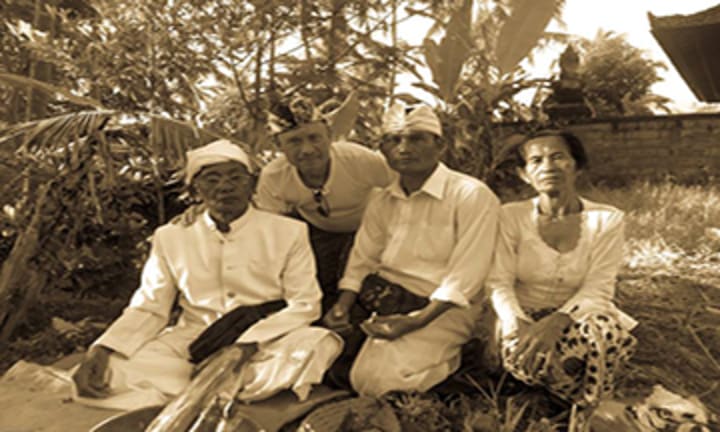
Despite a marriage prenup agreement that states property joint ownership, should push come to shove, I doubt my day in divorce court. Many foreigners holding such documents can argue otherwise. I wish them luck.
One of the real strengths of Indonesian cuisine and the cost of living is there is a real opportunity to eat out often. This will mitigate the need for proper kitchen spaces and open up a variety of living options.
Moving to Indonesia provides the opportunity to live comfortably without breaking the budget. Apartment buildings become scarce outside of Jakarta, which is why most take up the opportunity to live in a private villa. This is even more apparent in areas with high tourism traffic.
You can save money by moving out of Jakarta and Bali to live in smaller cities and oceanside villages. However, the money you save may be mitigated by a drop in quality of living and purchasing power.
Finding your home can often be done from abroad, so you need not visit Indonesia to do this. Many of the ‘higher-end’ homes aren’t marketed for locals. They are hoping to attract foreigners.
This lets you get a good idea of what to expect by searching online through Airbnb, Facebook groups like Bali Seminyak & Canggu Housing & Accommodation, and real estate sites if you intend on buying long-term leases.
Shared Room in Indonesia — $170
Private Apartment in Indonesia — $460
Luxury Villa in Indonesia — $1100
As much as there is a bevy of accommodations online dedicated to those wanting to move to Indonesia, I suggest using your own eyes is still the way to go. When moving to a new place, the little things like nearby cafes, parks, and activities matter. So book a short-term Airbnb before arriving and take the time to explore your new home before settling on a place to live.
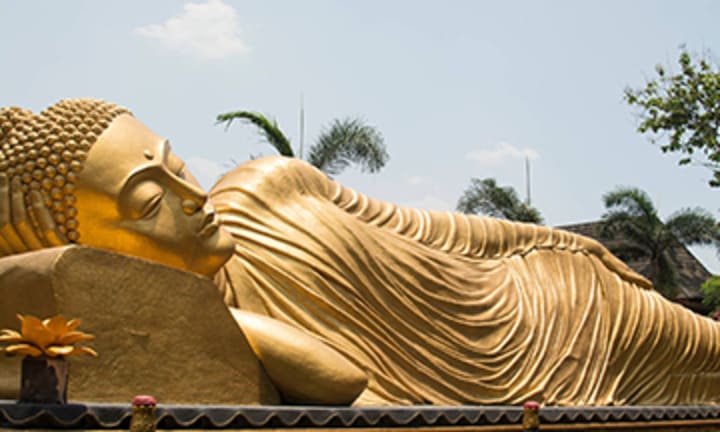
I lived in Bali, Yogyakarta, and East Jawa.
Life in an East Jawa Village
I call Pandaan my home now. It is a small town nestled between two mountain ranges.

About 20 meters from my villa is a 13th Century Hindu-Buddhist temple.
About two hours to the south is the largest active volcano in Indonesia, Mt. Bromo. Also to the south are the cities of Malang and Banyuwangi.
To the north is Indonesia’s second-largest city, Surabaya. Another two hours to the east is the ocean and the heart of Javanese magic, the Dukun Santet in Probolinggo.
Outside my town, the mountains are pristine and feature quaint kampoegns. There are also two professional 18-hole golf courses, resorts with horses, and many luxury hotels.
My village or kampoeng is called Plintahan. It consists of 1,000 friendly locals. They are poor but resilient and generally happy and kindhearted.
The average income for most Plintahan villagers is about $1-$10 per day. The family relies on each other and a good job is scarce.
My Indonesian wife’s uncle is 110 years old and the rest of her family lives next door.
One of mankind's greatest questions has followed us like a shadow since the dawn of time. Many myths about immortality…
Helped by neighbors, she built a nice, two-level townhouse-sized home on family property for about $20,000 (2015). In Los Angeles, CA I figured the same would cost two million dollars.

The Plintahan community news is announced by loudspeakers from the local Mosque.
There are rarely arguments between neighbors. Each family contributes to a community chest to cover the expense of (2) all-night guards, trash pick-up, and funerals.
Many borrow money from the community chest, employer, and a credit company. They’re all in debt. I am also one of the only people who can afford an internet connection and air conditioning.
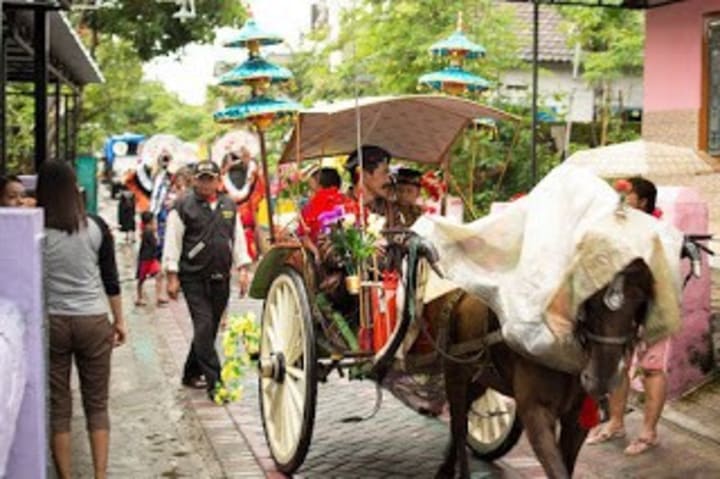
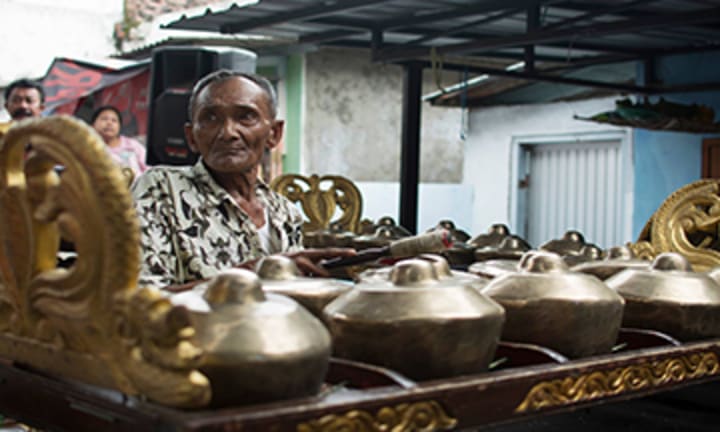
I am the only foreigner to live in Plintahan. In humor, the locals call me “bule kampung” (white villager). As such the notoriety has made me a local Mr. Bean.
They’re honored that a foreigner wants to be part of their community.
I felt marooned in this world far from my former Minnesota home. I had no like-minded community. The reason, mostly, is language. Not knowing the language will alienate you.
Indonesians are polite but it’s more of an auto-response. For example, the Japanese bow. It’s an ancient traditional courtesy but that doesn’t mean they’re your new best friend.
Making a lasting friendship with an Indonesian takes time and is often earned. In America we can cold call or contact people we don’t know and try to connect. In Indonesia, you need to meet in person and build a relationship. Something involving money to their benefit always helps.
Where I am there are no libraries. Except for school books many do not read or speak English.
I had my first book Guitarlo translated into Indonesian and to my delight many Indonesians liked it.
The indigenous music of dangdut blasts from the speakers of many Indonesian homes. If you can sing or play guitar learning a dangdut song can help make you popular.
Marriage
Do you want (3) wives? Yes, it’s legal if you claim Islam as your religion but you need the blessing of your first wife!
On our auspicious wedding day, I woke up in Tuti's rickety bed in what used to be her bedroom at Uncle Matt's. Tuti and…
Video of Traditional Javanese wedding
Indonesians love humor!
Check out the Australian Vlogger, Londokampung. His silly language-based, prank videos made him rich and famous.
Another foreigner leveraging the Indonesian language for notoriety and money is Vlogger, Sascha Stevenson. Sascha has been a long-time expat and paid her dues as a teacher turned media celebrity.
These Vloggers are another example of the power of language. Unlock it and a new world will open.
Transportation
Getting around Indonesia can be an adventure. For anyone familiar with South East Asian traffic, you can come to expect something similar when living in Indonesia. That doesn’t mean it is all terrible, there is something about the way the chaos flows that makes sense.
For expats and travelers, taxis are often the main way to get around your new destination. Taxis can be used for short trips and longer journeys out of town. They can often be unregulated so make sure the fare calculator is turned on or you negotiate your fare before departure.
I prefer to hire a driver who owns a car.
Buses in places like Jakarta and Yogyakarta are common and can be a cheap way to get around. Quality can vary, especially if you’re someone that needs a cool air-conditioned ride.
Due to cost, much of Indonesia gets around on the back of a scooter. It is not a rare sight to see a family of five smoothly making their way around town on one. A scooter will likely be the best option for you as you can rent but if you’re staying buy one. A new one will run you about $1500 and the quality is excellent.
Another popular option is the train. They’re inexpensive, scenic, and fun. Throughout Jawa, you can go about anywhere by train.

Jawa also has modern highways. To help cover maintenance costs they have tolls.
Food
Indonesian food is spicy and delicious, often healthy, and always flavorful and cheap. Wherever you are, there is likely to be a ‘warung’ flooding the streets with mouthwatering aromas. Indonesian food varies greatly as you move from one end of the country to the other.
Complex spices with noodles and rice will be the base of the majority of your meals. From their creativity, home cooking and tradition will guide your chef’s menu.
Inevitably it will be hard not to give in to temptation and eat out every day, especially when you see the prices dangling right in front of you. You might meet expats that never cook their food. But as you settle keep track of your budget so you aren’t forced to take the next flight home. A happy medium of eating out and browsing local markets for at-home meals is the way to go.
Remember while eating out nothing is checked for cleanliness and safety. Coming down with a case of Bali belly (shits) is common.
Eating out at local ‘warungs’ will come with cheap dishes such as Beef Rendang and Nasi Goreng which cost anywhere from $1–$3. Western-style food is marked up considerably and you will be hit with a relatively hefty $10 meal.
Supermarkets are more common in larger population hubs, like Bali and Jakarta. Elsewhere, local markets are filled with homegrown fruits, vegetables, and fish. Remember that anything imported can easily blow out your budget.
What do the locals eat with an income of $200 per month? Typical diet includes Tofu, Tempeh, egg, chicken, Ikan Asin (cheap fish), gado-gado, sayur sop, pezel, nasi goreng, and rice. Plus, add chili sauce!

Drinking
Indonesia is a predominantly Muslim country (90%). Outside of Bali (which is almost entirely Hindu) and Jakarta, villages and provinces have a limited or non-existent bar scene. When you want some alcohol it may come down to who you know or do what I do and order it online from Tokopedia. In Bali they’ll deliver it.
Bintang is a popular Indonesian lager and can be found almost everywhere for about $2.30 (large bottle). In bars, hotels, and restaurants, you’ll pay more.
On average I spend $250 per month on wine. Call drinks like Vodka and Whiskey are imported so they will cost a lot more than wine.
One 2-liter box of Bali Hatta wine cost about $20.00.
What you need to know about the law
Guns are illegal.
Smuggling and selling drugs can lead to a long prison term and execution.
Do read about Indonesia's new morality law because it affects foreigners and locals alike.
Mind your business, keep your VISA updated, and don’t drive a motorbike into a swimming pool.
Carry your KDP identity card.
“If you don’t like it, leave.” (local sentiment)
On the road it’s risky, there is no insurance, and accidents are settled on the spot.
Crash into something on the Toll you must pay for its repair, which is another reason I don’t drive.
If you call the Police they’ll show up at some point and sometimes want payment. Arrest and discharge for profit? It happens.
If there is an alcohol or cigarette legal age it is not enforced. Don’t worry about getting a ticket for drunk driving because unless you cause an accident or create a disturbance no one will care.
Bottom line the law is more strict in Islam-dominant areas. Bali on the other hand leans toward tourism and has a reputation for a do-as-you-may spirit. But, don’t test the boundaries.
Crime
The majority of crime is petty thievery i.e. purse, cell phone, motorbike, and whatever else can be easily grabbed and disposed of. Lots of scams, corruption, and piracy.
Crime varies depending on where you are.
Even though my guest was murdered in Bali by a bandit and I was robbed by a contractor I still feel safer here than in America.
Bali - the dark side
Anne-Marie contacted me through Facebook, inquiring about renting my villa in Bali. We agreed to meet a few days later…
Bali — the bright side
I developed a relationship with Wayan (pronounced Why-Ann), the gardener. Like Made, my housekeeper, Wayan is a common…
The Weather
Indonesia is prone to flash flooding.
There are two seasons, hot and rainy. The rainy season is usually between October and March. The heat can be on average 87F-100F. The mornings and sunsets are nice.
More observations
The wires loop above the street corners like dangling spaghetti noodles.
One city is nondescript as the other. If the product is in demand one street will sell the same item in triplicate.
All sales are final.
Getting a repairman may take days.
Health Care
Health care is by western standards questionable.
Indonesia spends a paltry 3% of its GDP on health care. The World Health Organization rates it at the bottom — 95th out of 100.
It's better or worse depending on where you are. As an expat with a KITAS/KITAP visa, you can buy the Indonesian public health service called BPJS. It's incredibly cheap but you get what you pay for.
I recommend going to Gleneagles in Kuala Lumpur for your serious healthcare needs.
A not well-known fact is that Indonesian doctors can sue you for defamation. You can do nothing to them. There’s no such thing as a liability. Remember, as I’ve said before be careful what you say and to who you say it.
Indonesians are sensitive to criticism so a bad temper won’t get you the desired result.
Most of my medications are not available in Indonesia. Several had the wrong dosage and importing medicine will require permission from the Ministry of Health.
Don’t do what I did check first — contact Kamia Farma, Indonesia’s largest pharmacy, and ask.
I was misdiagnosed twice for skin cancer. The Doctor/University Professor recommended that a plastic surgeon fix it!
The dentist took several trips but they finally got it right. A crown cost me $75.00 In America, it would cost $1,000.
I hope whatever is wrong with you they have the experience and technology to handle it.
If you call an ambulance it will take a long time to arrive.
Sometimes, the ambulatory service can ask for a video in advance. The traffic tries to yield to emergency vehicles but sometimes they can’t. There is no place to go.
Top 5 Lifestyle Diseases in Indonesia
Cancer. The seventh leading cause of death in Indonesia
Chronic kidney disease. This disease is associated with mortality
Heart disease. Based on the National Household Health Survey (SKRTN), the heart disease death rate was 53.5 per 100,000 people
Stroke
Hypertension
These diseases are very common in Indonesia and include:
Bacterial, parasitic, and viral gastroenteritis/traveler’s diarrhea (epidemic)
Cholera (rare)
Clonorchiasis
Hydatid disease
Melioidosis
Parasitic intestinal worms and fluke
Typhoid fever (common)
Viral hepatitis
Dengue
If for no other reason than health care, Indonesia is a questionable choice for expat retirement.
I strongly advise you have International health care insurance. However, even if you have it not all hospitals are equipped to bill the company and you must pay cash.
School in Indonesia
If you have made the move to Indonesia with your kids, you will wonder what to expect with their education.
There are three types of schools you can consider, public, private, and International.
I do not recommend Public schooling for a variety of reasons. It will be the cheapest option however it will pose a strong language barrier and quality depending on where you live in Indonesia.
Private schools often exceed the public curriculum and occasionally use the International Baccalaureate (IB) system. These schools still mainly cater to local students, with foreign pupils making up a small part of the student body. Private schools can be a more cost-effective way to complete schooling here.
International schools are the most common education for the kids of expats. International schools are based in Indonesia but their curriculum is accredited by a different country such as the USA or Australia.
This is the most expensive option even so it will be most in line with what you would receive elsewhere. Prices differ because of curriculum, age, and location. For example, for a 12-year-old studying at an American International school in Jakarta, tuition fees hover around $13,500.
At the last count 2021, 20 schools offering foreign curricula were operating in Bali.
Take your pick: Australia, France, the International Cultural School, and the expensive famous dream school — Green School.
But, like housing, I strongly urge deep research before you leap.
Banking in Indonesia
Whether or not you open up a bank account in Indonesia will come down to your plans. If you work online it may not be necessary to change what has been working for you.
Opening an account isn’t difficult and can be completed in a day. However only those with a KITAS visa can open a bank account.
ATMs are common in most places, but International fees can be high and some places can be fickle when trying to make an internet connection.
Taxes in Indonesia
If you’re interested read this article.
Other perks
I can get a 90-minute full-body massage in my house for less than $5.00.
I can get a great haircut for less than 50 cents.
Almost everything can be repaired for cheap.
Are you ready to pack your bags?
Making your way to a new country and enjoying a fresh start does sound like a wonderful adventure. But like any major venture in life, it comes with its fair share of turbulence.
Moving abroad takes courage and maybe a few loose screws.
Familial and friend Dislocation
Accepting the fact that not everyone where you came from will approve or care how you live. Names like “runaway” and subjected to attitudes. Including what I am doing is irresponsible, somehow bad, or selfish.
Much of this response is jealousy and ignorance-based. Ignore it. Many had dreams that will never come to fruition. When they see the few who have they look for negativity.
Living near a Mosque
Consider that Indonesia is the largest Muslim population on Earth. If you have an issue better decide to live elsewhere.
Except for Bali, there is a Mosque everywhere. Five times per day the Mosque broadcasts prayers that can be heard from afar so whatever you don’t complain.
To complain is considered blasphemy and you can go to jail for it or worse. If you listen to some of the prayer singers, they are both talented and wonderful to listen to.
Change
Indonesia is improbable and ongoing.
It is an ever-evolving nation with laws and rules often changing constantly. There is a lot of misinformation online and on non-updated Government websites.
Tourist photos can deceive and opinion varies. When you’re on the outside looking in it’s hard to figure out. When you’re on the inside looking out it’s still hard to convey.
Poverty
Indonesia is a poor country.
Poverty is agonizing and even with the thickest skin, the pain will sink into your heart. If you are insensitive to the lives of have-nots you should choose a different home.
Adjustment disorder
Adjusting to an alien culture takes time. Go with the flow or talk to “Wilbur” — the hand-painted soccer ball in the film Castaway.
I ain’t got nobody I can depend on
Self-reliance is a big part of living abroad. It is also a cultural trait of being Indonesian. Even if supported by many we are all alone in the world. This can become magnified in a foreign country where language and cultural differences are to the extreme.
Conclusion
No matter where you try and live the grass may always seem greener. Your new life abroad will come down to what you can tolerate.
Adaptation can become a challenge for a new set of cultural mores and languages. Entitlements and the fact you are now the stranger.
Living abroad will test you to the breaking point. If you survive you’ll remain if not you’ll pull your hair and scream. It’s difficult to live in a place where English is not well known and laws are Draconian.
The reality you are familiar with turned upside down.
To survive and find happiness abroad, you must give up some of your beliefs, mores, and way of life.
A part of you must let go as you deal with things you do not agree with but must tolerate.
This is difficult to do. It takes a strong will to change. A part of you will be gone. Few can deal with that.
The expat experience has rewards but it’s not for everyone. And remember, appreciate Indonesian pride and don’t complain.
Sampai jumpa (see you soon)
About the Author
My new book Solo-10 Years in Bali features ten true-life adventures. Amazon rated it “The Best 2-hour Travel Read,” and the Jakarta Post wrote, “Cultural information-packed book will give you real insights into the struggle of an outsider trying to fit in a faraway utopia.”

Happy Trails!
About the Creator
Arlo Hennings
Author 2 non-fiction books, music publisher, expat, father, cultural ambassador, PhD, MFA (Creative Writing), B.A.


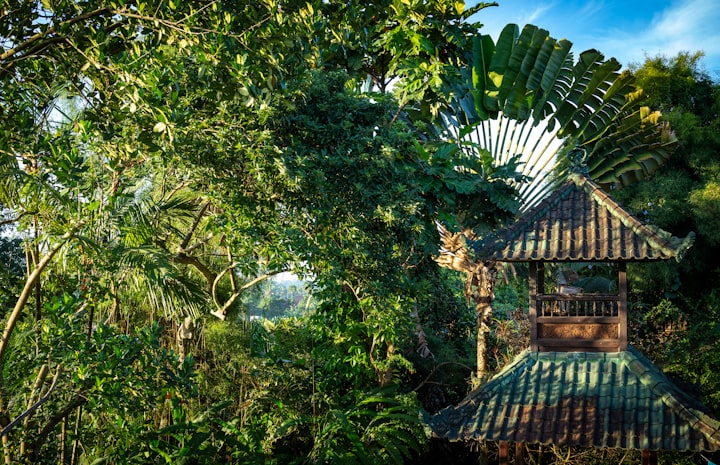



Comments
There are no comments for this story
Be the first to respond and start the conversation.